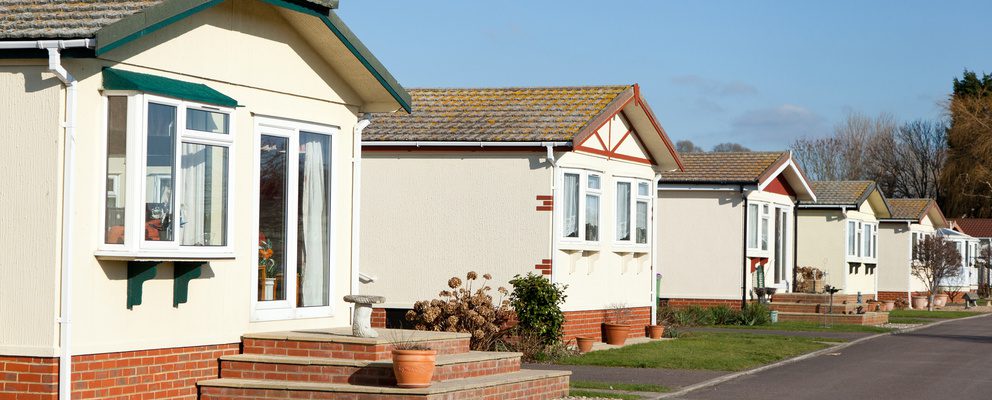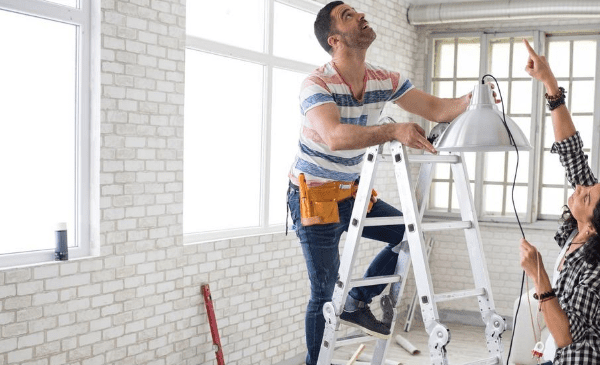
If you own a mobile or manufactured home, it’s important understand the differences between them, especially when it comes to insurance coverage. People often use the terms “mobile home” and “manufactured home” interchangeably, but they are distinct structures with different characteristics and insurance considerations.
Characteristics
While both mobile homes and manufactured homes are built elsewhere and delivered to a home site (often a mobile or manufactured home community), the similarities end there. The most significant differences between these two structures are the date built, the construction methods used, and the federal code regulating their construction.
Mobile home characteristics:
- Built before June 15, 1976
- Attached to a mobile chassis/trailer
- Often sited in mobile home parks
- Can be “trailered” to a vehicle and moved
- Unregulated construction
Manufactured home characteristics:
- Built on or after June 15, 1976
- Constructed following specific rules for design, durability and safety
- Built using similar materials as site-built homes
- Manufactured in sections at a factory; transported to the designated site; assembled by professionals
Construction and safety standards
While we’re not going to dive too deep into the details of the U.S. Department of Housing and Urban Development’s regulations on manufactured homes, it’s important to understand what these standards mean.
Before 1976, there were no guidelines regulating how to build mobile homes, and this lack of regulation often resulted in shoddy and unsafe homes. In 1976, the Department of Housing and Urban Development enacted the Manufactured Home Construction and Safety Standards commonly referred to as the “HUD Code.”
This code set standards for the building of manufactured housing, including:
- Design and construction
- Strength and durability
- Transportability
- Fire resistance
- Energy effciency
- Overall quality
- Performance standards for all house systems, including electrical, plumbing, heating and air conditioning
Because of the HUD Code, the quality and the safety of these homes significantly improved. The Code also meant that you couldn’t buy a new “mobile home” after 1976 because any structures conforming to this code were considered a “manufactured home.” Of course, many of the pre-Code mobile homes are still around today.
Insurance considerations
Insuring a manufactured home is similar to insuring a site-built home, but there are a few considerations to be aware of. Property and liability coverage will cover most common scenarios, but there are a few additional policies you should consider.
Weather-related damage
While manufactured homes are constructed to high-quality standards, they are more susceptible to weather damage than site-built homes. Because manufactured homes are lighter than site-built homes, they can blow over more easily during severe weather, causing significant damage.
Because manufactured homes are smaller and have less ventilation than site-built homes, water damage caused by burst pipes is also a concern. While a standard homeowners policy will likely cover these situations, if a pipe bursts because it’s not properly maintained or due to homeowner negligence, you may not be covered.
Replacement cost coverage
With most homeowners policies, the amount an insurer will pay if a home is destroyed is based on the home’s value at the time of the claim. Unlike site-built homes that usually appreciate in value over time, manufactured homes typically depreciate, especially if you don’t own the land underneath.
Replacement cost coverage can help protect against the depreciated value of a manufactured home. This policy pays the homeowner the amount necessary to replace the manufactured home with a similar model, not its actual cash value.
Coverage during transit
Depending on the terms of your homeowners policy, you might not be covered while your manufactured home is in transit, either after construction when it’s transported to your home site or if you decide to relocate it after purchase. If someone will be transporting your manufactured home, you might need additional coverage to protect it on the road.
Part-time use and lower premiums
Some manufactured homes aren’t full-time residences; they might be rentals, seasonal homes or vacation homes. Homeowners who aren’t living in their manufactured home 24/7 might be tempted to purchase a low-cost insurance policy. While the price tag is attractive, low premiums mean less coverage, so be sure to understand exactly what is and is not covered by these types of policies.
Manufactured homes aren’t what they used to be, and that’s a good thing. Today’s manufactured homes are safer than the mobile homes of the early 1970s and built to high-quality standards.
If you’re in the market for a manufactured home or if you’re already an owner looking to insure one, contact your insurance professional to be certain you understand what makes these homes unique and how you can protect them.





